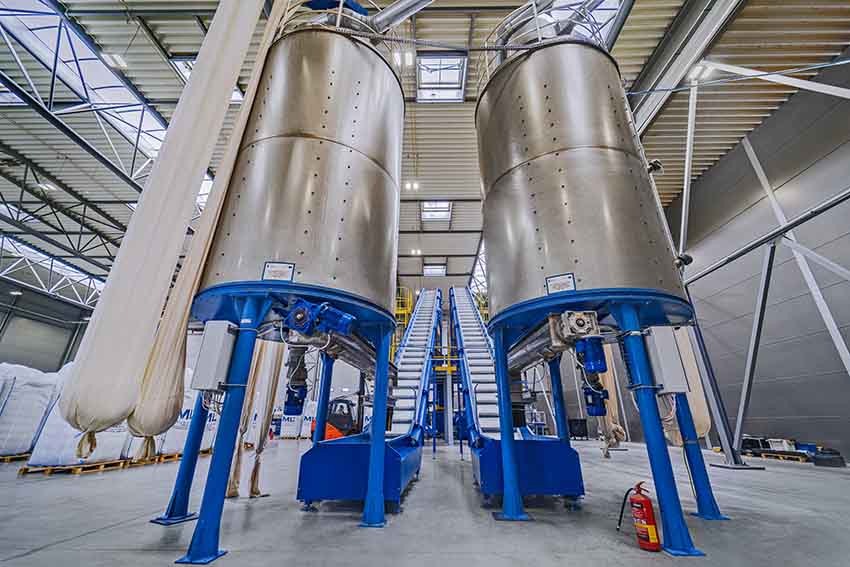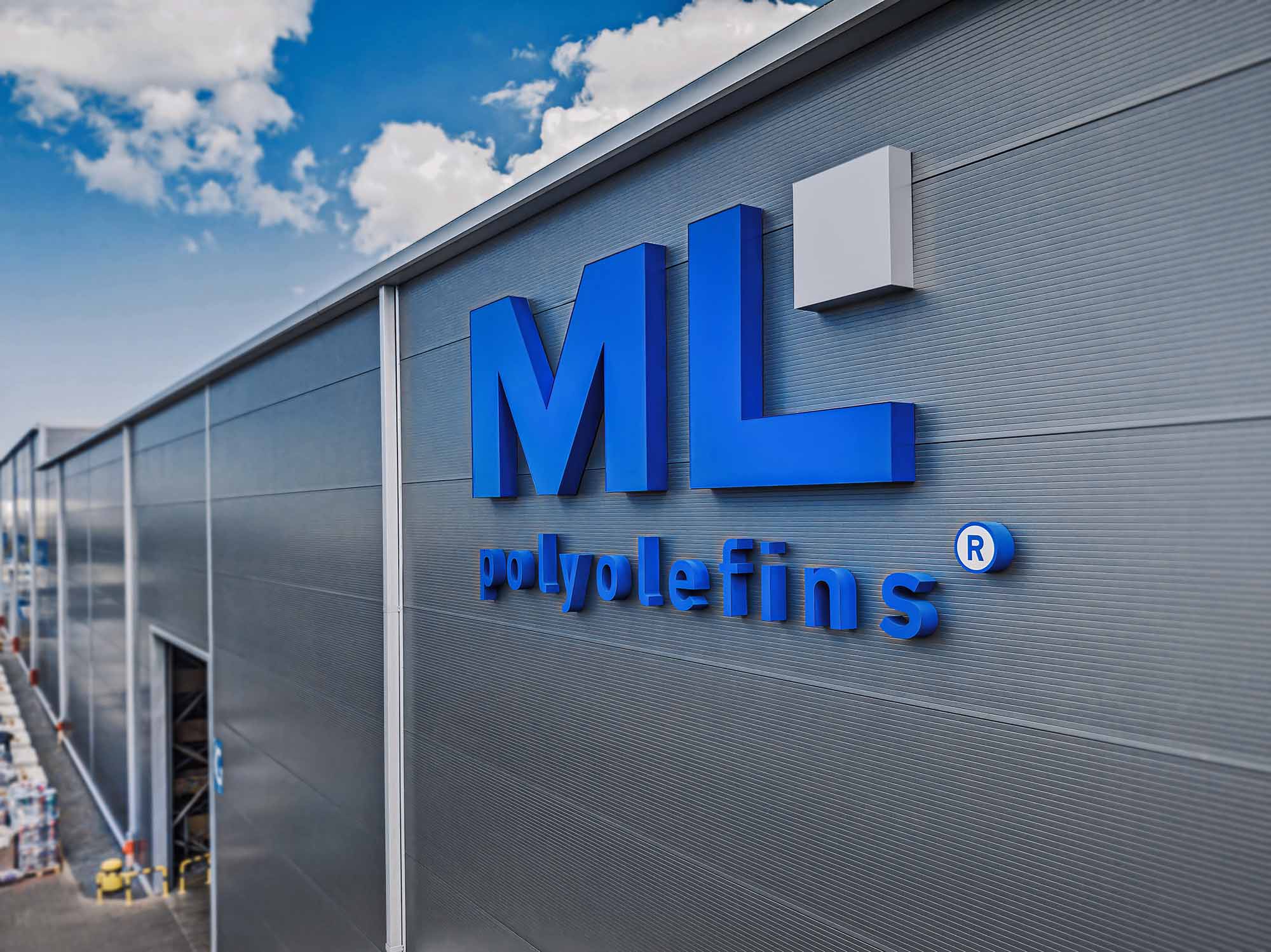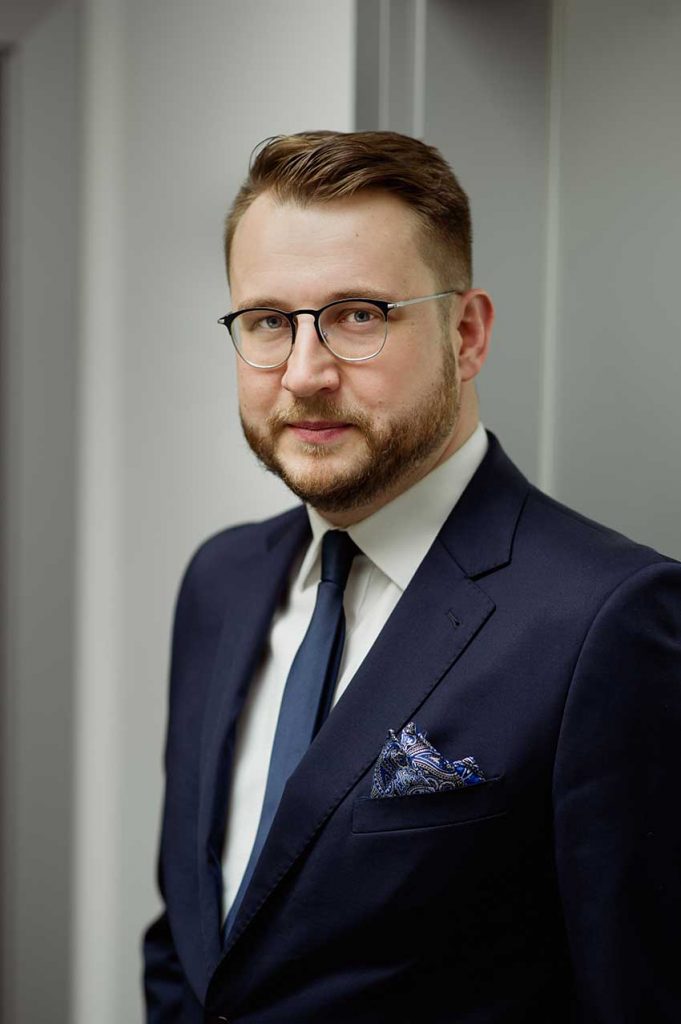Interview with Krzysztof Nowosielski, Commercial Director at ML Polyolefins.
Easy Engineering: A brief description of the company and its activities.
Krzysztof Nowosielski: We have been operating on the plastics market since 2000, when the main basis of our activity was purchase and trade in recyclable materials, and since 2006 we are on the market as a recycler. From the very beginning, we were focused on servicing and ensuring proper waste management in companies where waste consist mainly of flexographic packaging. Naturally, the character of waste forced us to specialize in processing them, and polypropylene is our main product. With time, along with the development of company and machinery park, we also use other types of input in production. Now we used both post-industrial and post-consumer wastes. When it comes to PCR, we have the EuCertPlast standardization, being able to deliver PP with this certificate.
E.E: What are the main areas of activity of the company?
K.N: Naturally, the basis of our activity is still waste management, which we do comprehensively – through audits and developing solutions in places where waste is generated (which allows us to maximize waste recycling), proper machinery (containers, balers, etc.) or training of our suppliers’ employees. We operate in the whole of the European Union, providing services to the leaders of flexography in Europe. We also suggest solutions that bring these companies closer to achieving the sustainability goals and the circular economy. This means that we are actively involved in the eco-design of their products to minimize the share of non-recyclable products in their portfolio. However, when it comes to our production activity, we focus on the production of high-quality polypropylene regranulates and compounds based on recyclates (reCompounds) which we sell in Europe and North America. Our regranulates are also the raw material to the ecoproducts (e.g. paving grids and landscape edgings) of the brand StellaGreen® produced by us. These products are mainly garden accessories which our partners can use in their companies.

E.E: What’s the news about new products?
K.N: At the moment, we are devoted to develop new recipes related to the use of increasingly difficult waste to process. When it comes to waste, the polypropylene market is limited, and we cannot expect any improvement in this area. The amount of waste available for recyclers is insufficient and not qualitative enough, especially in view of the European Green Deal and pursuit of the goals of the circular economy. Our R&D Department also focuses on reCompound products, as there is a growing interest in this type of product and a growing demand for them. A lot of companies are actively looking for sustainable solutions and change a kind of raw materials. The blends based on polypropylene and HDPE are recently the apple of our eye.
E.E: What are the ranges of products?
K.N: We specialize in the production of black polypropylene regranulates. The input materials used in the production allows for repeatable production of high-quality granules. However, each product is also tailored to the client from whom we receive guidelines and parameters, and our R&D department takes care to meet these expectations. Our production is based on post-production materials, but post-consumer waste, which is gaining popularity due to European Union regulations, also has an increasing share in the material input. In any case, our based products are homopolymer PP recyclates, in black and gray, with the possibility of MFI modification up to 30. We offer grades for injection, extrusion or rotomoulding.

E.E: At what stage is the market where you are currently active?
K.N: It is precisely due to the European Union regulations that we are currently observing a great demand for recyclates on the market. Plastic waste is a big problem that we – as a society – have to deal with. The growing interest in recyclates generates a high demand, and there is scope for recycling companies like ML Polyolefins. Therefore, they play an important role in the circular economy. This topic returns along with the discussion on the climate crisis, the need to reduce greenhouse gas emissions and the extraction of natural resources. I am convinced that the coming years will bring major changes to the plastic market, and recyclates treated with a grain of salt before will play an equal role in the supply chain as prime materials. In any case, this is the direction that European legislation is heading in, so we have a very interesting period ahead of us.
E.E: What can you tell us about market trends?
K.N: The plastics industry is developing at a rapid rate due to the interest on recyclates. We expect demand to continue to grow as some kind of recycling fad is emerging in society. And this is where the greatest reserves of the market lie – initially we are talking about popularity of recycling, but in fact it will be a permanent mental change in a moment. This is already happening in some countries, where this awareness is on a completely different level than in our part of Europe. This is obviously due to historical and political conditions, but Central and Eastern Europe is very ‘mobile’ when it comes to such changes, and I think that we will be catching up with this distance at an express pace. After all, increases in the production and consumption of plastics are still visible. We have to deal with plastic waste by reusing it. The technology allows for the production of regranulates of a quality similar to the original. Legislative changes that concern plastic packaging are an impulse for industry entities to act and change their business model to a sustainable one.
E.E: What are the most innovative products marketed?
K.N: I think that at the moment compounds based on recyclates are in the lead. They allow for a really significant interference in improving the technical features of plastics, while implementing the assumption of the circular economy. The modifications allow you to squeeze more out of the theoretically inferior load. In my opinion, this is one of the way to deal with a lot of waste, which so far was very difficult to manage it. So we decided to invest in compound lines and their improvement, so that advanced technology combined with our own know-how will satisfy the most demanding customers. And in connection with the fact that we supply our products to very different industries, including automotive and household appliances, there are many challenges in our work.
E.E: What estimations do you have for 2022?
K.N: We are just finishing investments from our Enterprise Development Strategy 2019-2022, related to building of a new injection hall for eco-products. We plan to launch it in the first half of 2022. And then relocation and laboratory equipment. We have already completed the investment related to upbuilding of the regranulate factory and the installation of new machinery, so for that we will have a moment to breath. However, our R&D Department works very intensively, focusing on development of new products. Customers have high requirements due to the change in the input structures in their products, as the increasing share of recyclates in finished goods in many industries. Certainly, a lot of work awaits us from the marketing or image side. We actively engage in education for sustainable development, showing enterprises what this change is about, what benefits it brings and suggesting implementations. So from this side we are facing an intense year 2022, certainly with the premieres of new products dedicated to use in industries where high-quality recyclate become necessary.



